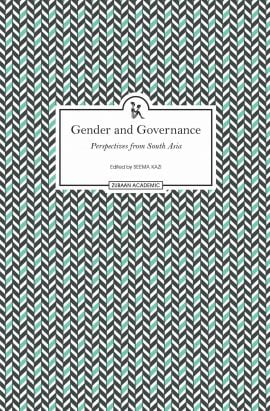No products in the cart.
Return To Shop
Log in / Sign in
Login
Register
Filter by price
Gender and Governance: Perspectives from South Asia
₹ 550 – ₹ 795Select format This product has multiple variants. The options may be chosen on the product pageThis book examines the structures of governance as they impact women in five conflict zones in South Asia: Swat in Pakistan, the Chittagong Hill Tracts in Bangladesh, the Northern Province in Sri Lanka, and Kashmir and Manipur in India.
Despite their different historical and political contexts, the five studies included here throw up some common patterns. War and conflict have weakened and eroded existing formal structures and institutions of governance. New formations, whether made up of militant groups, or more ‘secular’ state institutions like armies, do not see women as rights-bearing actors. Further, the authors argue, the impact of war, conflict, settlerism and militancy can make state structures more distant and sometimes incomprehensible to citizens, leaving women’s specific gender concerns unaddressed.
Taken together, the essays show that women’s relationship with governance institutions is complex, and combines dependence on such institutions with the challenge of dealing with new forms of patriarchy that take root as structures transform and change. The gendering of governance policy and practice therefore, is of crucial importance.
CONTRIBUTORS: Amena Mohsin | Delwar Hossain | Nazish Brohi Saba Gul Khattak | Malathi De Alwis | Udhayani Navaratnam | Nima Lamu Yolmo | Shaheena Parveen | Ayesha Parvez | Seema Kazi
Categories
Filter by
Product tags
academic
AFSPA
Bangladesh
caste
conflict
Dalit women
e-essays
feminism
feminist
feminist fiction
Fiction
gender
Gender and sexuality
gender studies
health
history
impunity
India
Kashmir
legislation
Literary Fiction
Memoir
Nagaland
New Editions
Non-Fiction
Northeast India
Pakistan
Poetry
sexual violence
Short Stories
sociology
South Asia
state impunity
SVI
SVI Project
Top Ten
translation
violence
violence against women
women's activism
women's movement
women writer
women writers
young zubaan
Zubaan Classics
Contact Us
© Zubaan 2019. Site Design by Avinash Kuduvalli.
Payments on this site are handled by CCAvenue.


